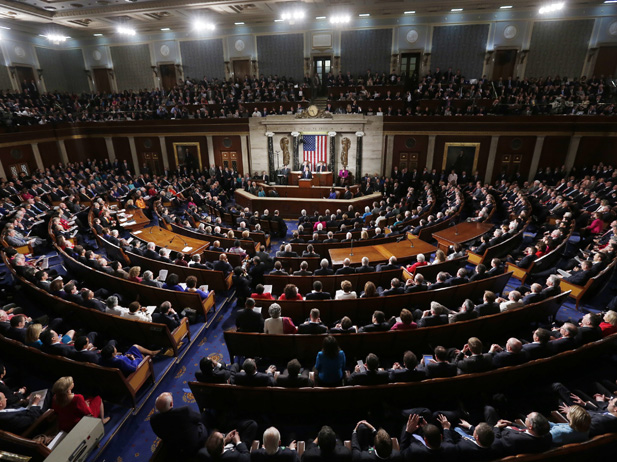Guest Post: America’s Sputnik Moment
More on:

After watching President Obama’s State of the Union address last week, I asked my colleague Anya Schmemann, director of CFR’s Task Force Program for her thoughts on the speech. Here is her take:
I watched President Obama’s State of the Union speech last week with my nine-year old son. He nodded when the president called for improvements in education and respect for teachers. But when Obama mentioned America’s Sputnik moment, he looked puzzled.
I explained to him that a long time ago, when his grandfather was his age, the Russians sent a satellite into space, and Americans suddenly realized that they were not the best in science and math in the world. What Obama was saying is that America is in such a moment now, but this time with China, not Russia.
“Half a century ago, when the Soviets beat us into space with the launch of a satellite called Sputnik,” Obama said, “we had no idea how we would beat them to the moon. The science wasn’t even there yet. NASA didn’t exist. But after investing in better research and education, we didn’t just surpass the Soviets; we unleashed a wave of innovation that created new industries and millions of new jobs.”
“This,” he said, “is our generation’s Sputnik moment.”
The Soviet Union launched Sputnik 1 more than half a century ago in 1957. The surprise achievement shocked the United States and spurred the Cold War’s space race. The post-Sputnik boom was a catalyst for technological and scientific research and development in the United States.
What is our new Sputnik crisis? Global competitiveness. And what is the big threat now? Asia.
Obama has summoned the ghosts of enemies past in an effort to turn the current feeling of national decline and concern about Asia’s rise into a drive to compete. He is urging Americans to "win the future," arguing that the federal government should foster advances in science and technology, as it did during the space race.
By likening China’s technological strides to the Soviet Union’s space program, the president is challenging Americans to get serious about competition. “We need to out-innovate, out-educate, and out-build the rest of the world,” he declared.
The Sputnik crisis created a surge of investment impelled by fear of an external enemy. Obama hopes to recreate that sense of urgency. China may not be the Soviet Union of today, and its technological advances are not as striking as the dramatic achievement of Sputnik in the 50s, but its progress is undeniable.
Obama’s warning is stark -- the future prosperity of the United States is at risk unless the nation increases its investment in education and research. In his view, the current Sputnik moment will determine whether the United States leads or follows on the world stage.
If the United States is going to do “big things,” as Obama promised, government funding will be needed. Society-wide investments in science, technology, infrastructure, and education can help revive the U.S. economy and ensure it remains competitive against rising economic rivals like China.
My son is good in math and science, and I think he took the Sputnik story to heart. I certainly hope he will be able to do big things and help America win its future. But it will take smart investments today to keep America in the lead tomorrow.
More on:
 Online Store
Online Store
